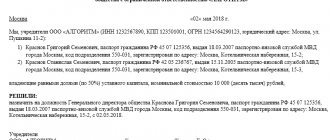In the professional environment of businessmen, there are often incomprehensible terms that have come into use from other countries. And one of them – the beneficiary – is quite common in the field of business, offshore and insurance.
photo from the site https://weekend.rambler.ru
Read our article about who the beneficiaries are and what they do.
Who is the beneficiary
The beneficiary is always an individual who has at his disposal more than 25% of the authorized capital of the company (the remaining percentage belongs to other participants in the management chain). Moreover, such ownership can be direct or indirect. The second option is achieved when a person owns a percentage of a corporation, which in turn has at its disposal the assets of another company.
Important principles for assigning the status of “ultimate beneficiary” in the chain of ownership:
- The citizen directly or indirectly (through actual participants) has the prevailing amount of capital of the company.
- He also has access, on the basis of a contract, to significantly influence the decisions of a legal entity or the movement of financial flows.
Thus, one of the owners of the primary organization becomes an indirect authorized participant and the second (a certain chain of leaders is revealed). Indirect participation in no way means representation (like the representation of children by their parents). This rather implies nominal or real participation in the life of the company at the choice of the beneficiary without prejudice to himself.
Over the past few years (as of 2020), innovations have been introduced into legislation regulating the functioning of companies with a chain of owners and managers. This was done mainly to eliminate violations related to money laundering, as well as the financing of terrorism.
Who is the beneficiary in simple words: their rights and obligations
According to the information described above, a “beneficiary” is a person claiming a portion of the organization’s material assets and profits from the total.
It can be established that the following can be considered beneficiaries:
- Heirs who, according to the will, become the rightful owners of property or are given the opportunity to dispose of it.
- Landlords who rent out property.
- Holders of financial accounts who manage them personally or through third parties. The determining factor will be the presence of control over the money, and the transactions are not necessarily carried out personally. Even if all of them are initiated at the direction of a third party, it is she who will be the beneficiary.
- Managers of financial assets transferred to the management of other organizations, which brings in some income.
- Holders of bank guarantees, which are also called documentary letters of credit.
- Recipients of money in insurance cases.
- The actual bosses of companies, and it makes no difference whether they are owners from a legal point of view.
Beneficiaries, as people who have contributed more than a quarter of the total amount to the capital of the enterprise, can:
- use your own parts at your own discretion;
- monitor management's performance;
- resolve personnel issues regarding the position of general director;
- take part in general meetings of founders and shareholders;
- vote for certain decisions within the existing share;
- earn a percentage of the total turnover.
Responsibilities are established by an internal agreement with the company and other regulations. But first of all, this person must regularly submit comprehensive information about himself, both independently and at the request of authorities.
You should know! For failure to comply with the requirements for keeping records of beneficiaries and providing information about them, a legal entity will be fined from 100 thousand rubles to 500 thousand rubles. For an official who did not control the reporting process, administrative sanctions are also provided in the form of a fine of 30-40 thousand rubles.
Who is the ultimate beneficiary in a legal entity?
https://youtu.be/6HJQZCZdC5Q
Who is a beneficiary and how does he differ from a beneficial owner?
Since we are talking about the beneficiary’s ownership of the company’s assets (in monetary or share equivalent), he can also be designated as a beneficiary. The topic of financial fraud reveals the concept or word “beneficiary” as the main person receiving the benefit. Thus, the beneficial owner is always the final recipient of the benefit.
Responsibilities of financial institutions regarding the operational actions of chain participants including final beneficiaries:
- carry out the initial identification of the beneficial owners of legal entities, isolating them from among other managers;
- annually monitor the update of information on beneficiaries;
- if you have any doubts about the reliability of the available information, clarify it within a week;
- provide within three days to the authorized institution information on operations: type of operation, amount and date of its execution, information about the alliance of all participants.
The recipient of the benefit does not always act as a beneficiary (the main requirement for obtaining the status of “beneficiary” is the volume of capital ownership of 25%). Nominally, the manager of the company can be one person. In this case, the main beneficiary (beneficiary) is hidden. It is precisely because of this that it is so important to identify beneficiaries who may not participate at all in the life of a legal entity while owning it.









